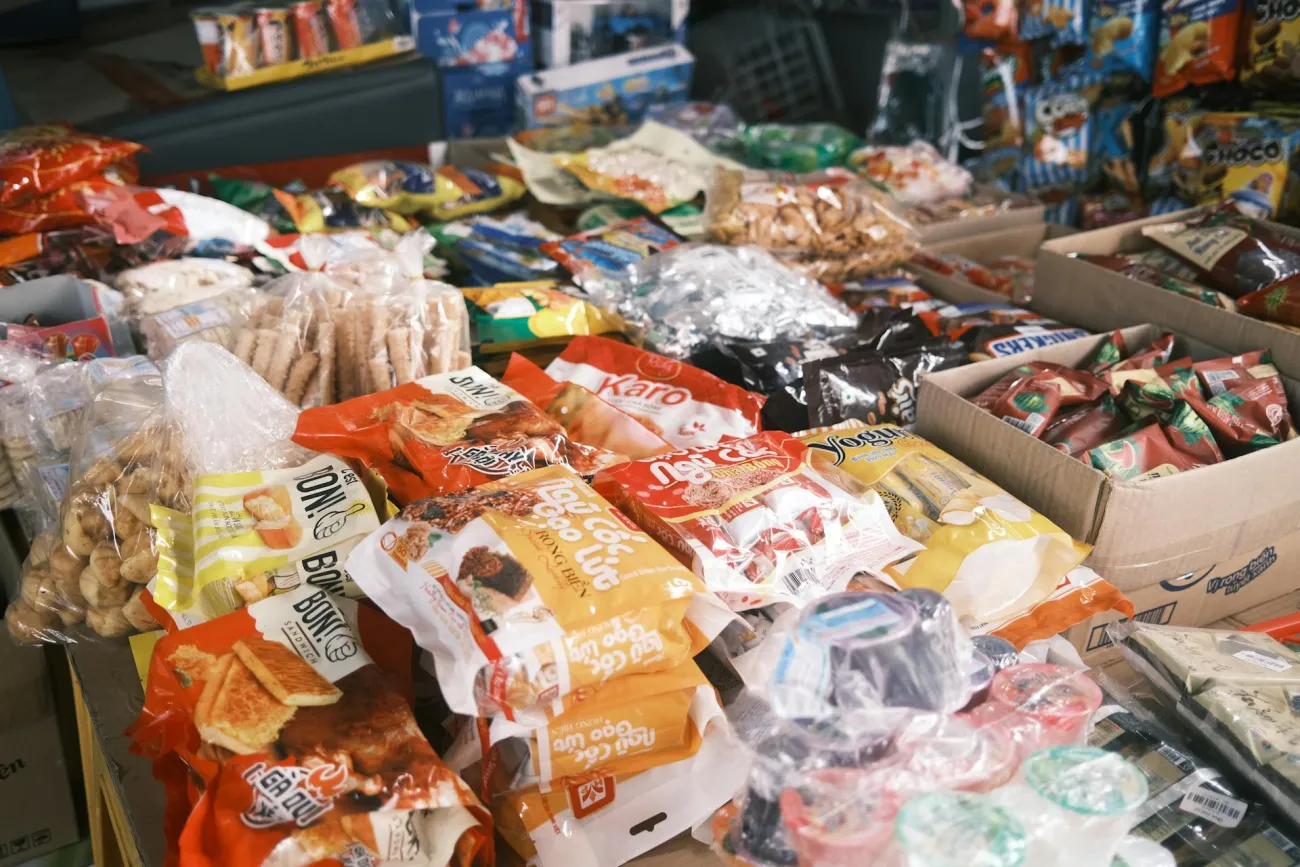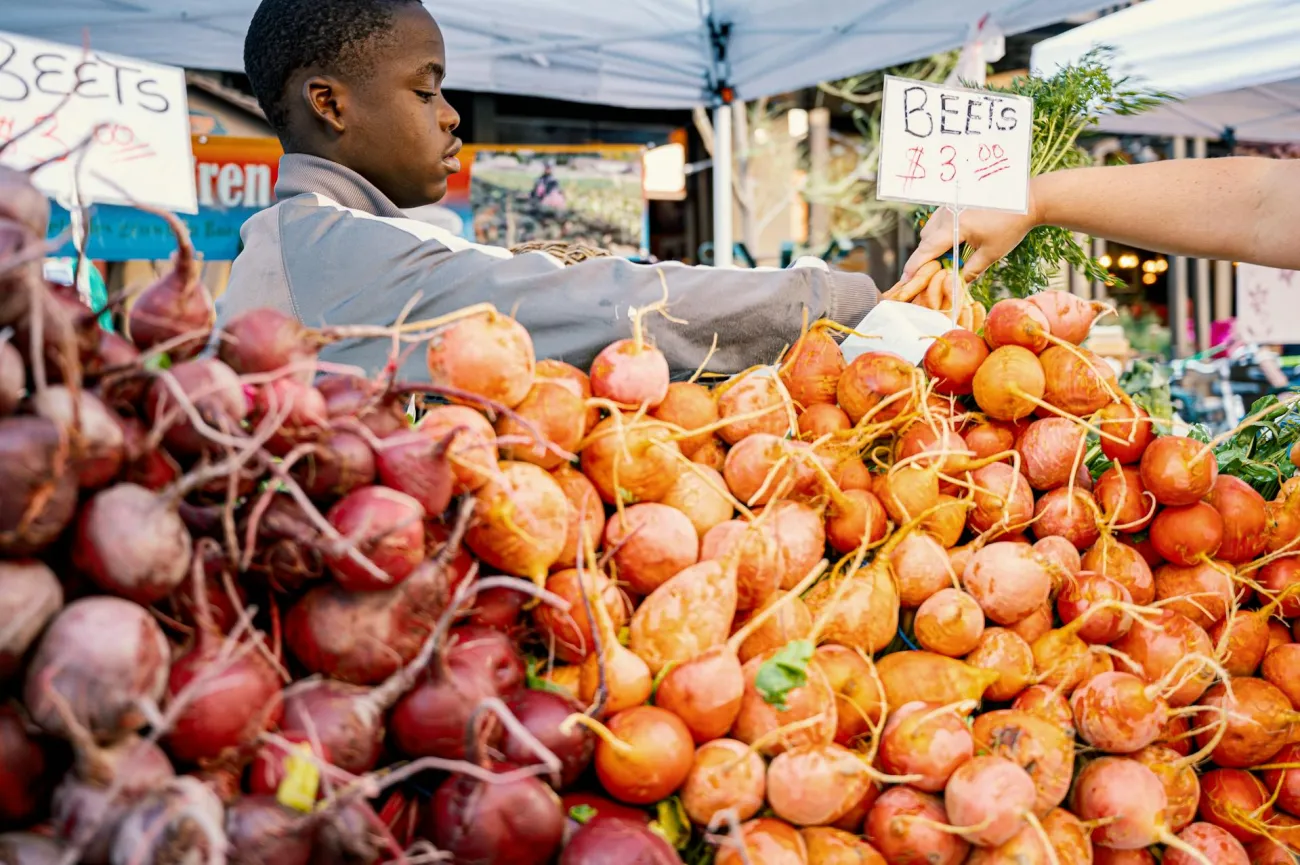Episode summary
500 scientists from 60 countries gathered at the 5th Global Food Security Conference in Leuven, Belgium. Instead of saying, "you had to be there," we bring you voices and reflections from the conference. Host Matthew Kessler recorded dozens of interviews, asking experts what key messages they want to deliver to those with the power to change food systems, what are the economics of food systems transformation, and which solutions to make food systems more resilient deserve more attention.
This is Part 2 of a 3-part series, made with the support from ‘shout it out’, an instrument of the Global Minds program.
Subscribe to TABLE's newsletter Fodder
About the Global Food Security Conference
Food system activities are increasing putting pressure on planetary boundaries and the natural resource base which underpins food security for all. They are also accentuating the triple burden of malnutrition for many, and healthier diets derived from more sustainable food systems are needed. The triple ‘Cs’ of climate, covid and conflict, and other recent short-term shocks to the food system, have emerged against a background of longer-term stresses, adding the issue of food system resilience to the already-recognised sustainability agenda. There is therefore an urgent need for food system change both to improve health and environmental outcomes in fairer and more equitable ways, and to enhance resilience to further shocks and stresses. Building on the momentum from the UN Food System Summit and recognizing that the 2030 target year of the Sustainable Development Goals is on the horizon, this 5th Global Food Security Conference will bring together science, business and policy to address this need.
This 5th edition was organized by Elsevier, KU Leuven, Wageningen University and Research and TABLE.
About the speakers
David Laborde is the Director of the Agrifood Economics and Policy Division at the Food and Agriculture Organization (FAO) in Rome. In this role, he supervises a number of flagship publications, such as the State of Food Security and Nutrition (SOFI) or the State of Food and Agriculture (SOFA), and leads the division’s work on policy monitoring, policy reform, and realignment of incentives to support agrifood system transformation. He also provides leadership on two priority areas for the institution: resilience and bioeconomy.
Charlotte Janssens is postdoctoral researcher in Agricultural Economics at the Department of Earth and Environmental Sciences at University of Leuven (KU Leuven). She is affiliated with the Biodiversity and Natural Resources Program at the International Institute of Applied Systems Analysis (IIASA). Her research agenda focuses on the linkages between agricultural trade, climate change, and food security on a regional and global scale. She specializes in advancing economic and interdisciplinary quantitative modelling tools for the analysis of future socioeconomic and climate change scenarios.
Koen Deconinck is an economist in Trade and Agricultural Directorate at OECD. He analyses trends and challenges for global agriculture and across the food chain, and distill the policy implications for OECD member states. He was the lead author of the OECD report “Making Better Policies for Food Systems” (2021) and "Fast and furious: the rise of environmental impact reporting in food systems" (2023).
Steven Lord is researches the economics of food systems it the Environmental Change Institute at the University of Oxford. He has worked on system and economic modelling for sustainability, risk and resilience within the Food System Transformation Group, fostering a broad range of international collaborations. His research interests are divided between research into social and abatement costing of food system impact, pure mathematics, and food systems modelling.
Purnima Menon is the Senior Director for Food and Nutritional Policy at International Food Policy Research Institute (IFPRI). She oversees three units within IFPRI/CGIAR: Nutrition, Diets, and Health (NDH), Poverty, Gender, and Inclusion (PGI), and Markets, Trade, and Institutions (MTI) and is based in New Delhi, India. In her work in India, Dr. Menon directs POSHAN (Partnerships and Opportunities to Strengthen and Harmonize Actions for Nutrition in India), an initiative to support more use of evidence for nutrition in India.
Ewout Frankema is professor and chair of the Economic and Environmental History Group of Wageningen University and research fellow of the UK Centre for Economic Policy Research (CEPR). His research agenda focuses on a deeper understanding of the long-term comparative economic development of developing regions (Africa, Latin America, Asia) and the historical origins and nature of present-day global inequality.
Related Resources
Report: Fast Fast and furious: the rise of environmental impact reporting in food systems (Koen Deconinck, Marion Jansen and Carla Barisone, 2023)
Report: Achieving SDG 2 without breaching the 1.5 °C threshold: FAO’s global roadmap (FAO, 2023)
Report: The Economics of the Food System Transformation (Food System Economic Commission, 2023)
Report: The State of Food and Agriculture 2023 (FAO, 2023)
Working paper: What are people eating in Nalanda, India? Food consumption, food security, food sources, and food perceptions (CGIAR, 2024)
Article: Behavior Change Interventions to Address Unhealthy Food Consumption: A Scoping Review (Shivani Kachwaha et al., 2024)
Article: From the Great Divergence to South–South Divergence: New comparative horizons in global economic history (Ewout Frankema, 2024)
Blog: You want to reduce the carbon footprint of your food? Focus on what you eat, not whether your food is local (Hannah Ritchie, 2020)
Related Feed episodes
Is Global Food Security a Solvable Puzzle? (Part 1)
Jayson Lusk on Markets and Consumer Power
Narrowing the yield gap in Sub-Saharan Africa
Ken Giller on the Food Security Conundrum
Sophia Murphy on "Getting the global rules right"



Comments (0)